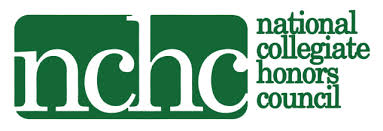Local Games in ABQ
Seminar - UHON 401
Instructor(s): Chris Holden
Course Description
This course is about making games as a way to better understand local place. This can be a really fun thing, different from most classes and yet also strangely exact in preparing you for professional situations. In imagining yourself here, I want you to focus on the fun and uniqueness of the opportunity, not worry about what seems new, strange, or too hard.
You may think making games takes programming skills and lots of money. But thanks to some easy-to-use tools, normal people can do this too. It can be very empowering to realize that you can actually make things that other people can see/use/play. If game design sounds interesting but out-of-reach, it’ll be fine.
Game design itself is not just for those looking to get into the industry either. It is a surprisingly multi-faceted, interdisciplinary thing. In this class, you’ll have a lot of say in what talents you develop and gain experience working in teams.
You may worry that you’re not a creative person. Don’t. This class is for everyone and the secret of creativity is simple enough to share here: steal. Everything is a remix. Shakespeare may have made up words but he told others' stories.
Behind the art of game design lies another reason to sign up: to know more about this city. I grew up here and didn’t know much about this place until I learned how to learn about place through design. This course is about finding what’s hidden in ABQ and making it visible.
Games may sound like a funny way to know a place at first, but to make a game about a place or issue, you must set out to get to know that thing deeply and from a variety of perspectives. You need to know how to make it interesting to someone else. More than that, games and play are a fundamental factor humanity, and it’s a bit silly that we treat them as only for children. Everything is a game of some kind. It’s about time to figure out how they work from the inside.
Here are a couple videos that might help you think through these ideas a bit if they seem especially new.
- Jane McGonigal Games can make a better world
- Kurt Squire How Video Games Can Encourage Civic Engagement
Typically, we focus on using mobile games to explore place, sometimes called augmented reality (AR). The basic idea is that instead of being glued to the phone screen or stuck indoors, the software might work as a key that unlocks new experiences within the world. It isn’t exactly a new idea—I see you Pokemon Go—but it’s new enough that this field has not yet seen its Einsteins. With a good idea, hard work, and some luck, you could come up with something that might really go somewhere.
You can see some of the ideas that past students have tried here, here, here, here, and here. Beyond the limitless possibilities of a new medium, there are groups on campus and across the world who are looking for designers help them connect people to places and ideas.
In this course, we will learn about and practice game design. We’ll go outside the classroom and into the community. And the next time you are looking for a way to recruit participation in any endeavor, you’ll look back to those experiences and find something useful.
Texts
While game design is not learned through passive reading, we will still have some help to arrive at some common background.
- Games, Design, and Play (GD&P) by Macklin and Sharp.
- Extra Credits on YouTube
- How to Do Things with Videogames by Ian Bogost
We will also read, watch, and play plenty else, much of which you will need to find on your own and bring back to us. One of the most exciting things about the class is how it can change based on who walks in the door.
Likewise, when it comes to the city, there is more out there than we can hope to cover. Instead, we will need to work together to find useful sources. Not all of these will be paper. We will be exploring physically as well.
That said, there are some likely texty texts that can give us some basics when it comes to feeling a bit better informed about this place. Even if you don’t sign up, I highly recommend these.
- Albuquerque: A City at the End of the World by VB Price (former Honors professor too)
- City at the Edge (Podcast) by Matt Smith, Ty Bannerman, and Nora Hicky (also a former Honors professor)
Requirements
- The center of the course is a small-team design project, a local game.
- There is background work that goes into becoming informed about the city, games, place. Usual Honors stuff: reading, discussing, a bit of informal writing.
- Exploring: How can you get to know places better without going there and meeting people? Where and when will depend on us, but be excited to spend some time out in the city.
- Trying new things: whether we're talking about game design software, going places, or teamwork, there are no expectations for where you are when we start, but the idea is to take them on with gusto.
- Working on teams: This class isn't a collection of individuals checking boxes. It will depend a lot on bringing in your ideas and working with those of others. You need to be willing to treat being a part of this group as a major responsibility.
- Playing games: you don't need to be a gamer. Not at all. But how can you make games without spending some time playing them? Playing games as homework isn't for everyone. It's harder than it sounds.



Social Media
For news, information, prizes and more fun stuff follow us on our social media!
Honors College Resources